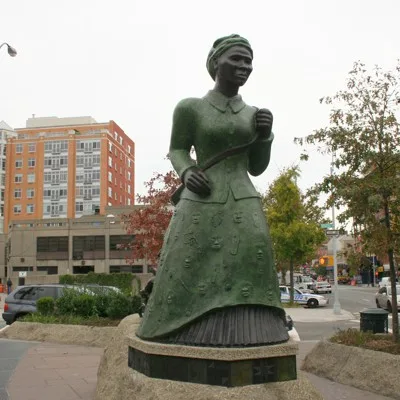
Today, December 13, marks an important, yet sobering, moment in New York history: it’s the day the New York City Council passed a law to create the city’s first slave market. By the time the Council enacted the law in 1711, Black people had already been enslaved in the city for decades and had built parts of New York – including Wall Street, where the slave market would later be held. But the law played a vital role in furthering the business of slavery, and New York eventually became the largest slave-owning state outside of the south. By some accounts, 42% of New Yorkers owned enslaved Black people.
More than 300 years later, New York has the opportunity to atone for that sordid history with another legal measure: the state Legislature approved a bill that would create the state’s first nine-member commission on reparations. Both the state Senate version of the bill, sponsored by state Sen. James Sanders, and the Assembly version of the bill, sponsored by Assembly Member Michaelle Solages, passed out of their respective chambers. Now, they just await Gov. Kathy Hochul’s signature. The governor should sign the bill into law.
Reparations is a form of redress meant to repair a previous injustice. While the redress may come in any form, the most common is monetary compensation by the government which sanctioned the wrongdoing. Groups who have previously received monetary reparations include Jewish survivors of the Holocaust, Japanese-American survivors of internment camps and South African survivors of apartheid.
For Black New Yorkers, reparations would account for slavery, segregation and decades of discriminatory laws and practices that impeded economic advancement. Hochul should sign the reparations bill into law simply because slavery existed in New York – that historical injustice is sufficient by itself. But it is even more urgent for the governor to establish the reparations commission because the vestiges of slavery still remain here centuries after the institution was abolished. Last week, New York City Comptroller Brad Lander released a report which indicates that white households have a median net worth that is 15 times higher than Black households. Lander concluded that “the findings of the report support the establishment of a commission to study these inequities and potential reparations.”
Today, 63% of white New Yorkers own their homes, while only 24% of Black New Yorkers do. How might that be different if New York had never passed a law in 1712 which declared that “no Negro, Indian or Mullattoo, that shall heretofore be made free, shall enjoy, hold or possess any houses, Lands, Tenements or Hereditaments within this Colony.”
Today, Black people comprise 56% of heads of households in the city’s homeless shelters and face greater threats of eviction. How might that be different if New York had never used eminent domain to acquire the homes of scores of Black families in upper Manhattan, to replace their village with Central Park, in what is today one of the wealthiest areas of New York?
The connections between slavery and decades of discriminatory laws are clear in almost every facet of life for Black New Yorkers: jobs, education and the criminal justice system. As a Commissioner on the New York City Planning Commission, I see it most clearly with housing. I am tasked with voting on land use proposals. While the proposals largely center on building new housing, they also shed light on the many Black New Yorkers who are priced out of New York. In the past two decades, New York City’s Black population has declined by 200,000, with many moving to southern states (in what has been called the “New Great Migration”). This is one of the reasons why New York City Public Advocate Jumaane Williams introduced the “racial equity law” to require reports which track and assess how urban planning might disproportionately impact New Yorkers of color.
I was part of a local reparations taskforce and testified before the New York City Council in 2021 in support of a commission on reparations. Throughout that process, I heard several criticisms of the proposal for a New York reparations commission but none that justified nixing the idea altogether. The biggest criticism is based on the myth that New York is now a relatively progressive state, so there is no need for historical remediation. But the state’s current political ideology does not change history. Not only was New York a large slave owning state, it had a very violent history against enslaved Black people. Some even argue that it would be unfair for the state to approve monetary reparations (through increased taxes) because the state’s population is now 35% people of color, including immigrants, who may have no connection to slavery or possibly be descendants of slavery themselves. However, the basis of reparations has always been that the government atones for a historical wrongdoing. And everyone, including non-Black people of color, has benefited from the legacies of the forced labor of Black people.
Some may question why legislators would pass a law to establish a commission to study reparations rather than just passing a law to approve a reparations plan. However, the creation of a reparations commission is a necessary first step in approving an eventual plan for reparations. Importantly, a commission would wade through thorny issues such as who would be eligible for reparations and what form reparations would take. If the governor signs the bill passed by the state Legislature, then New York would follow in the footsteps of California, which passed a law in 2020 to establish a reparations panel.
There is still time to make, and atone for, history.

